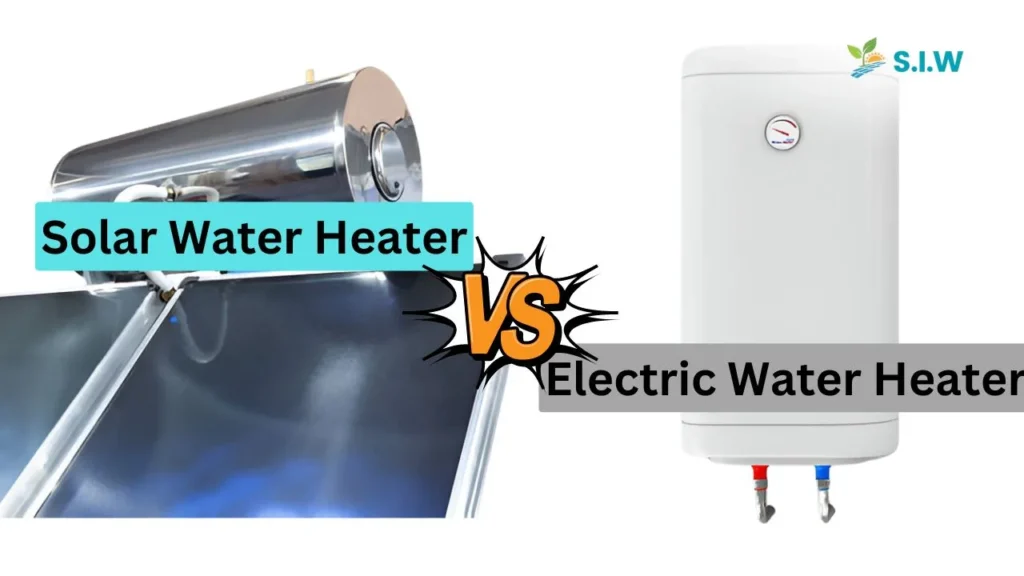Water heating is a crucial aspect of every household. Whether it’s for cooking, cleaning, or bathing, the type of water heater you choose can significantly impact your energy costs and environmental footprint. Two popular options today are solar water heaters and electric water heaters. In this article, we will dive deep into the pros and cons of both systems to help you make an informed decision.
Overview of Solar Water Heaters
How Solar Water Heaters Work
Solar water heaters utilize solar energy to heat water. The system comprises solar collectors, a storage tank, and sometimes a backup heater. Solar panels capture the sun’s energy, which is then used to heat water stored in insulated tanks. These systems can be active (pumping fluid) or passive (relying on natural convection).
Types of Solar Water Heaters
- Active Solar Water Heaters: These systems have circulating pumps and controls to move water through the system.
- Passive Solar Water Heaters: Relies on gravity and natural water flow. These are simpler and less expensive but less efficient.
Advantages of Solar Water Heaters
- Energy Efficiency: Solar water heaters significantly reduce electricity consumption as they rely on renewable energy.
- Long-Term Savings: Though the initial installation costs are higher, solar heaters offer significant savings on utility bills over time.
- Eco-Friendly: Solar energy is a clean, renewable source that lowers carbon emissions.
- Low Maintenance: With fewer moving parts, solar water heaters typically require less maintenance.
Disadvantages of Solar Water Heaters
- High Initial Cost: The upfront cost can be a barrier for many homeowners.
- Weather Dependency: Solar heaters are dependent on sunlight, which may not be consistent in all regions.
- Space Requirement: The solar collectors require substantial roof space for optimal performance.
Overview of Electric Water Heaters
How Electric Water Heaters Work
Electric water heaters use electrical resistance heating elements to heat the water inside an insulated tank. These systems are easy to install and widely available. When hot water is needed, the system heats the water stored in the tank and supplies it to the taps.
Types of Electric Water Heaters
- Conventional Tank Water Heaters: These systems store hot water in a tank and maintain the water temperature continuously.
- Tankless Water Heaters: Heats water on demand, eliminating the need for a storage tank.
Advantages of Electric Water Heaters
- Lower Initial Cost: Electric water heaters are typically more affordable to purchase and install.
- Availability: Electric heaters can be installed in almost any location with access to electricity.
- No Weather Dependency: Unlike solar systems, electric water heaters provide consistent performance regardless of weather conditions.
- Compact Design: Tankless electric heaters take up very little space and are ideal for homes with limited space.
Disadvantages of Electric Water Heaters
- High Operational Cost: Electricity can be expensive, especially for households that use hot water frequently.
- Environmental Impact: Electric water heaters rely on grid electricity, which may come from fossil fuels, contributing to a higher carbon footprint.
- Lifespan: Electric water heaters generally have a shorter lifespan compared to solar systems.
Cost Comparison

Key Takeaways:
- Upfront Cost: Solar water heaters are more expensive to install but offer greater savings over time.
- Operating Cost: Solar heaters have lower operational costs since they rely on the sun, whereas electric heaters can lead to higher utility bills.
- Lifespan: Solar heaters tend to last longer, making them a more durable investment in the long run.
Which is More Environmentally Friendly?
Solar water heaters are the clear winner when it comes to environmental impact. By harnessing the sun’s energy, solar water heaters reduce reliance on fossil fuels and cut down on greenhouse gas emissions. Electric water heaters, on the other hand, consume significant amounts of electricity, often generated from non-renewable sources, thus increasing the carbon footprint.
When to Choose a Solar Water Heater
- You live in an area with abundant sunlight.
- You are looking for long-term energy savings and are willing to invest more initially.
- You want an eco-friendly water heating solution.
When to Choose an Electric Water Heater
- You live in a region with inconsistent sunlight.
- You are looking for a budget-friendly option with lower upfront costs.
- Space is limited, and you need a compact water heating system.
Solar or Electric?
The choice between a solar water heater and an electric water heater depends on various factors, including your budget, location, and environmental concerns. Solar water heaters are more expensive initially but offer greater energy savings and a smaller carbon footprint. Electric water heaters are less expensive upfront but come with higher operational costs and a more significant environmental impact.
For those prioritizing sustainability and long-term savings, a solar water heater is the optimal choice. On the other hand, if your priority is upfront affordability and installation flexibility, an electric water heater may be the better option.








